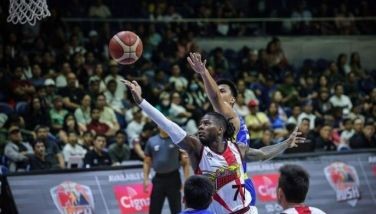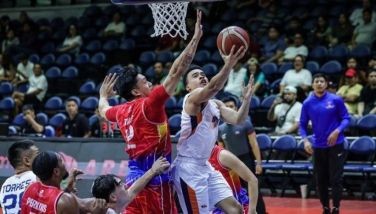Time for medical redshirt rule

Four years ago, it was suggested that the local collegiate leagues consider adapting the medical redshirt rule being applied in the US NCAA. We inquired from the UAAP if the rule has been adapted, considering the Board recently went through a comprehensive exercise to set down policy for the next three years.
In the US, a collegiate basketball player who is injured during the season but has seen action in no more than three games or less than 30 percent of the first half of the schedule may apply for a medical redshirt waiver where he is not penalized a year of his eligibility. However, this privilege is given only once so that a player has five years to play four in his collegiate career. Unlike in the local NCAA or UAAP where a player has five years of eligibility, the US limit is four.
There are instances where in the US, an athlete is allowed six years to play four under extremely difficult circumstances on a case to case basis. The exception is given when an athlete suffers a debilitating injury not just in one season but two.
The waiver is only fair. It’s almost cruel for a league to penalize an athlete a year of eligibility when he has played in less than 30 percent of the season’s games because of an injury. It’s bad enough that the athlete goes down with an injury. It’s worse if a year is taken out of his eligibility because of an injury.
Take the case of La Salle’s rookie center Tee Samuel, a foreign player from New Zealand. He made his UAAP debut this season against FEU and within 5:17 minutes, went down with a fracture in his left foot. An MRI revealed a break between the base and middle part of the fifth metatarsal of his foot. Last Friday, Samuel underwent repair surgery. Orthopedic surgeon Dr. Jose Raul Canlas said the operation went smoothly. “If lucky, we can get him to play in six weeks although he won’t still be in top shape,” said Dr. Canlas. At the moment, Samuel is walking around in a boot to immobilize his foot.
Samuel, 19, is often mistaken as a Fil-foreigner because of his mestizo-like looks. But he’s a full-blooded New Zealander who played for his native country at the FIBA World U19 Championships in Cairo last year. Samuel averaged 12.1 points and 3.4 rebounds in the competition where he fired 24 in an 87-63 win over Mali and 17 in an 85-69 decision over Egypt. He’s not a dominant player like La Salle’s former foreign recruit Ben Mbala but he was being counted on to fit in new coach Louie Gonzalez’ team-oriented system. Samuel isn’t as intimidating as Papi Sarr or Prince Orizu but he’s a key piece in La Salle’s rotation so his absence is telling.
Whether Samuel will be able to return in time to finish the eliminations is a question mark. But if not, this year will be counted against his five-year eligibility unless the medical redshirt rule has been adapted. If the rule isn’t in place, Samuel will be penalized one year for playing 5:17 minutes, scoring two free throws and grabbing two rebounds, this season. Whether a player is a foreigner or local, the penalty is harsh.
There is talk that the UAAP considered adapting the medical redshirt rule under the condition of allowing an extra year to an athlete who sustains an injury only in his last season of eligibility. The UAAP also has an age limit of 25 so that rule will supersede the allowance of an extra year in case of an overaged player.
This season, the UAAP opened its doors to Fil-foreigners who have graduated from college overseas to play in the league with immediate eligibility or no residence. The rules on age and the five-year limit will be applied to these players. To be eligible, the Fil-foreigner must enroll in a Master’s program in a UAAP school. Take the case of NU’s Troy Rike. He graduated with a Business Management degree at Wake Forest University and played four years with the varsity. That means he has only one year of eligibility left in the UAAP. Rike, 22, moved straight from Wake Forest to NU and was allowed immediate eligibility in the UAAP. The privilege is given only to Fil-foreigners. In Rike’s situation, it’s one-and-done in the UAAP.
This new rule on Fil-foreigners is a positive sign that the UAAP is breaking down barriers to welcome athletes of Filipino descent. It’s a sign of the times with globalization now a reality not only in government relations but also in sports. The SBP, for instance, is appealing to FIBA to allow Fil-foreigners, with certified Filipino lineage, to play for the country as locals because it’s their constitutional right as dual citizens.
- Latest
- Trending
































